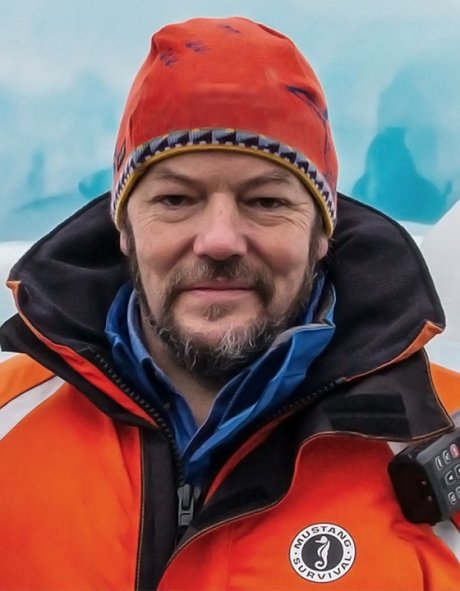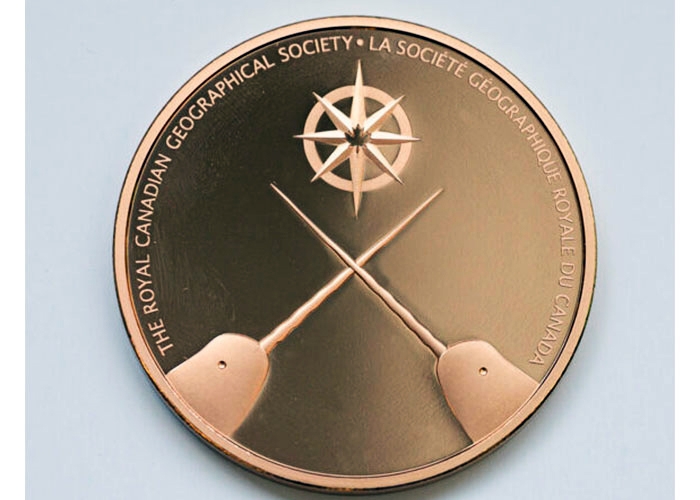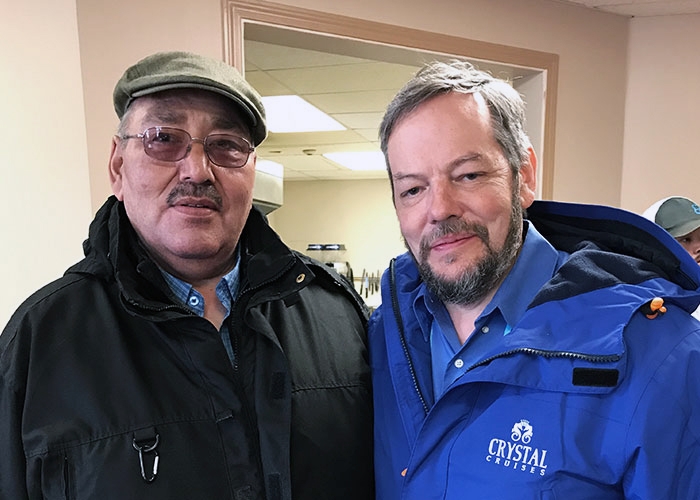RIC Prof. Russell Potter Awarded Kamookak Medal
- News & Events
- News
- RIC Prof. Russell Potter Awarded Kamookak Medal

One of the foremost experts on the history of polar exploration is honored by the Royal Canadian Geographical Society
RIC Professor of English Russell Potter, one of the world’s foremost experts on the history of Arctic exploration, with particular focus on the lost Franklin Expedition, was awarded the prestigious Louie Kamookak Medal by the Royal Canadian Geographical Society on Nov. 16. Potter was recognized for his distinguished career as a scholar, editor and educator and for making Canada better known to Canadians and the world.

Potter’s three highly acclaimed books on the history of polar exploration required decades of research and are used today by scholars on both sides of the Atlantic. They are: “Arctic Spectacles: The Frozen North in Visual Culture, 1818-1875” (2007); “Finding Franklin: The Untold Story of a 165-Year Search” (2016); and “May We Be Spared to Meet on Earth: Letters of the Lost Franklin Arctic Expedition” (2022).
“Arctic Spectacles” discusses visual representations of the Arctic along with a narrative about all of the major Arctic expeditions in man’s quest to reach the North Pole. While early Arctic imagery focused on the natural wonders of the region, later imagery would become ominous due to the human toll of Arctic exploration: lives lost and reports of cannibalism.
“Finding Franklin” focuses on one of the Arctic’s greatest mysteries – Sir John Franklin’s lost expedition to find the Northwest Passage. This work, ambitious in scope and profound in depth, made Potter one of the most respected Franklin scholars in the world.
Potter’s latest work, “May We Be Spared to Meet on Earth,” consists of the correspondence of the crew who set out on Sir John Franklin’s fateful expedition to the Arctic in May 1845. Most of these letters have never before been published. From them, the reader gains insight into the individual personalities of the men on board, the significance of the voyage through their eyes and their dawning realization that they would never return to Britain or their families.
Potter is also editor of the “Arctic Book Review,” founded in 1999, which highlights scholarly and literary works focused on the history, people, landscapes and wildlife of this fascinating and important region; and he appeared in the Nova documentary “Arctic Passage” (2006).
Of the Louie Kamookak Medal, Potter says, “When I found out that I was being awarded the medal, I had mixed feelings. After all, it’s named after the prominent Inuit historian and educator, who was also a close friend of mine. Louie and I often corresponded about our shared passion for the history of the lost Franklin Arctic expedition. He grew up in the Canadian Arctic only a few miles from where Franklin’s ships were last seen, and he collected oral testimony and searched the land on King William Island where he was born.”

“Louie’s work proved pivotal in the finding of Franklin’s ship – HMS ‘Erebus’ – in 2014,” Potter says. “He died of cancer only four short years later, but at least he lived to see the fruition of his many years of work. So, although it was a bit strange at first to hear I was being given this award, ultimately, I felt especially honored to receive the medal that bears his name.”
